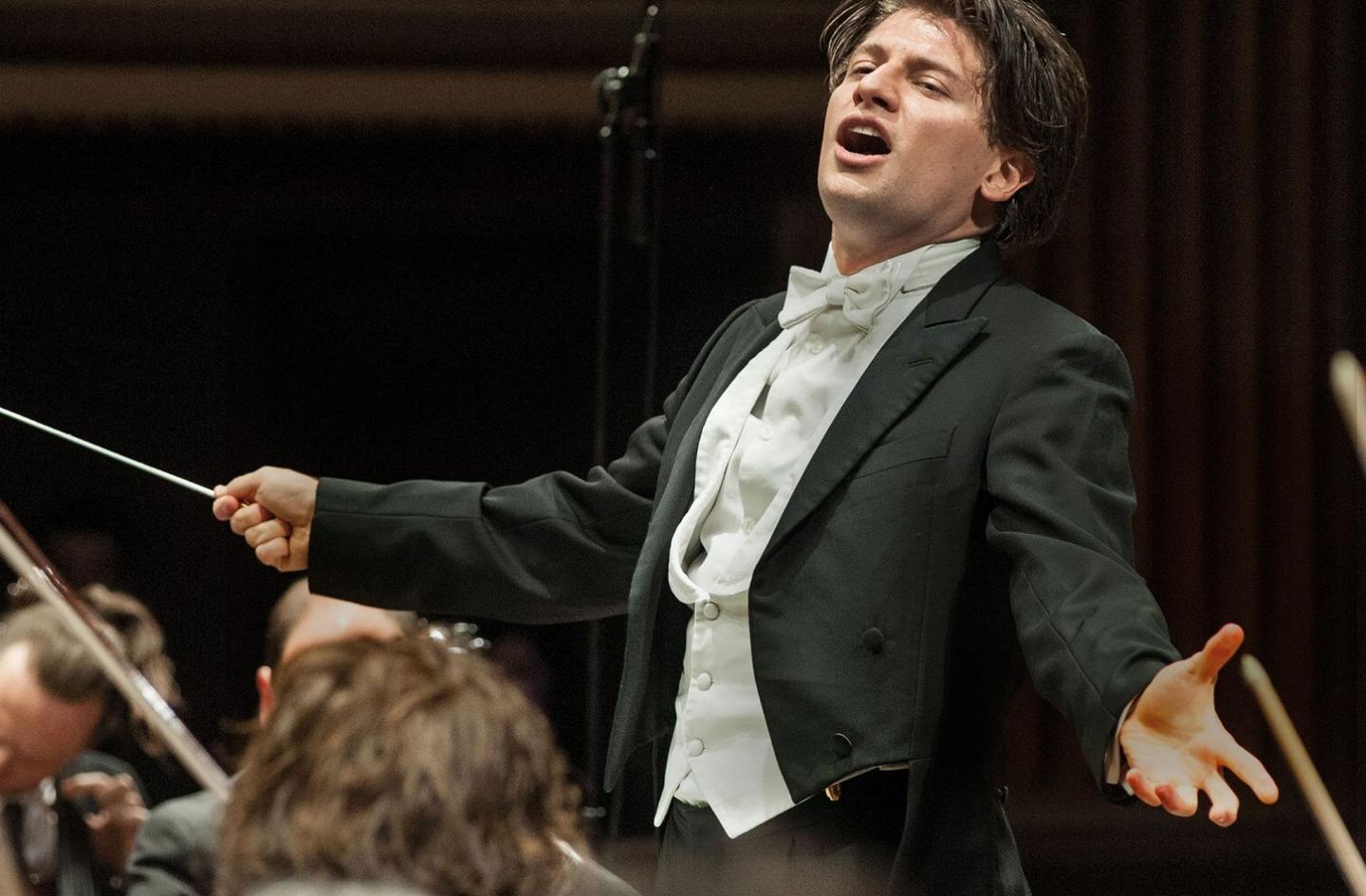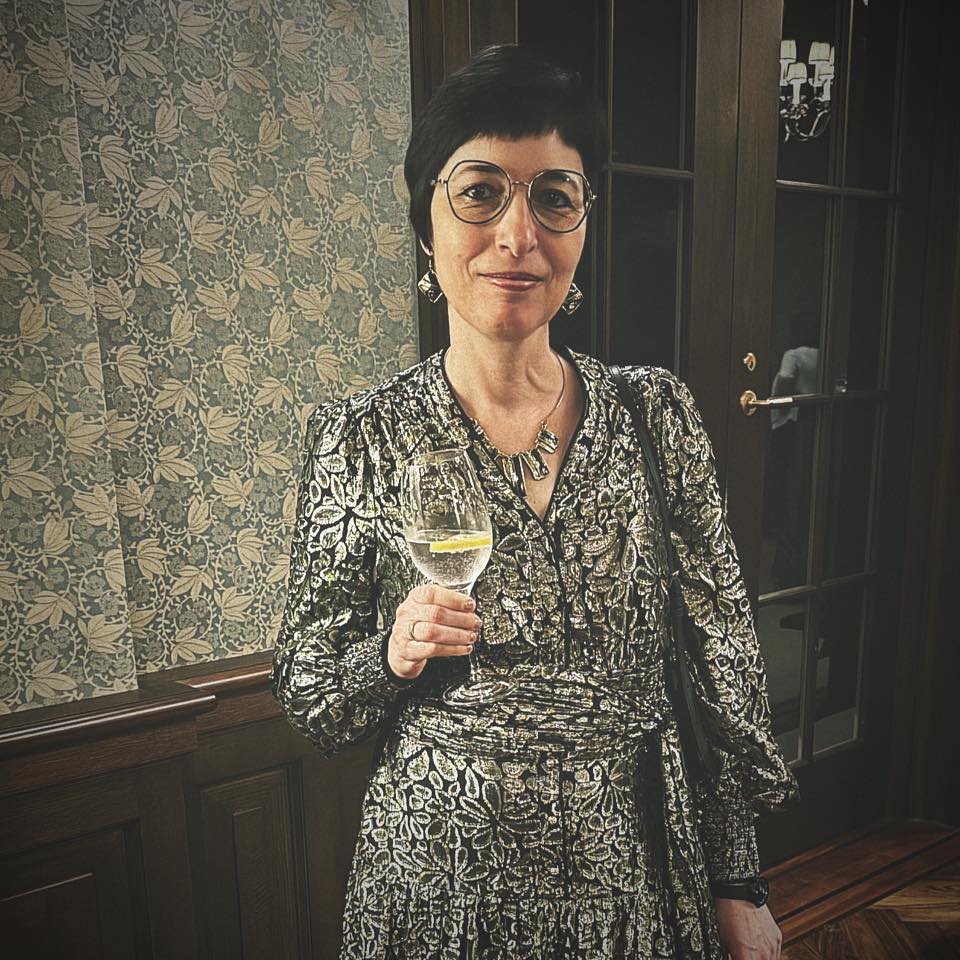Maria Joao Pires talks about getting free
mainThe pianist, on the eve of retirement, talks about how hard it is ‘to get rid of all the worries and the ego’ before the creative process can kick in.
‘Being on stage is the hardest thing that can happen to you (in order) to be in the creative process. And you have to love people without condition.’
Fascinating.






“Creative process”? Is she a composer?
You’re a bit of a numbskull, aren’t you?
I think my comment went over your head, so I’ll put it in the form of a very simple question that you can hopefully understand: What does a pianist create?
Adista, perhaps you do not understand what Maria is saying in the video. I thought she explained quite succinctly !
The musician “creates” the interpretation of the black blobs on the page, which, until she gets to them, have no life or sound. You might define it as a re-creative process (since the composer wrote the original blobs on the page), but, in a compelling performance, there is a lot of creativity going on.
Right. Music is not the notes but what will sound in concert.
. . . and what will “sound in concert” will MOSTLY resemble the notes and rhythms on the page – about 98% or so (I may be exaggerating, but it’s to make a ‘devil’s advocate’ point). The remaining 2% is purely in the ear of the beholder – the source of endless debate, “I’m right”-isms and hand wringing.
@John Borstlap:
there is no such thing as a “sound in concert”.
Sound always and only happens in the perceptive brain of the listener…
Such is the phenomenology of musical sound.
The more creative the listening is, the less sensory – mostly auditory in music – stimuli are actually processed, in relation to the creative (imaginative, thus happening without current real world stimuli) brain activity.
Yes, like the art work that is a physical object that provokes an aesthetic reaction in the brain of the observer mediated by his or her eyes, and music can be deemed a physical phenomenon (sound) that provokes an aesthetic reaction in the brain of the listener mediated by his or her ears. However, this (in reality very sound) theory concerns only let us say ½ of the process: the physical object can be a painting by Vermeer or a silkscreen image of a soup can by Warhol, and in the case of classical music the physical phenomenon results of a score AND an interpreter who uses his or her motor skills (and brain) to translate the score into sounds – and the interpreter of a recognized high quality score, let us say Chopin’s Scherzo No. 2, can be let us say Pollini or Rubinstein or some ambitious amateur or else, that is the listener can have as input either (sometimes very) different excellent interpretations or interpretations providing much less than ‘98%’ of the score. Maybe for a stupid listener it makes no difference in our so ‘relative’ and ‘democratic’ times.
Translation: “Yes.”
You’re free with the ad hominem but not with an answer, of course. I’m a pianist myself, we don’t create, we re-create. Big difference. Sure, we view the music through our individual lens, and put our own spin on the work. But at the end of the day, without the score we have nothing. Apparently this is completely wrong and I’m a complete idiot. Perhaps you’d care to condescend to your intellectual inferior and help me understand just how wrong I am? Are you saying musicians are equally as creative as the composer? I hope so because that would be great for my ego! Help me Bruce!
Poor you. Truly your ego isn’t up for the task at hand. Next, you’ll say something totally absurd, like a good plumber is of greater service to humanity than yet another classical pianist.
To Adista: I think that Pierre Boulez was 100% right when he dismissed ’graphic scores’ and sharpened the distinction between interpreter and composer – the composer should not leave the interpreter free to re-create (in reality ‘create’) the score from loose graphic indications – if the interpreter is supposed to take over this action then the interpreter should become a composer. But you evaluate yourself too low assuming that by the end of the day ‘without the score we have nothing’ – without you by the end of the day the score is nothing (but dots on lines on paper).
I don’t think Boulez was talking about something like a Mahler score, where the phrasing is pretty much built into the way the rhythms are notated, and where just incredible detail is given to dynamics and balances, etc. Yes, Mahler was somewhat vague with tempo indications and tempo relationships (from one section to the next). Regardless, Boulez’s Mahler recordings are pretty darn faithful to what’s written on the page. I’m sure he was speaking of more modern works, where a performance ‘tradition’ hasn’t been established (and might be meaningless if there were one). Or, on the hand, things like Handel, where there are much less indications as to what exactly should be done (Boulez recorded the “H2O Music”).
To Barry G.: Yes, Boulez was writing about graphic scores, that is avant-garde sonic art that is even more avant-garde than his own – nothing to do with Mahler or with other ‘classical-classical’ music.
Concerning Mahler, my favourite recordings of the symphonies, especially the works without vocal parts, are those conducted by Boulez – his conducting produces very clear, transparent sound landscapes that differs very much from the strongly emotional interpretation often given to Mahler’s symphonies.
Adista — some performers-who-are-not-composers, and also some composers (whether they are performers or not), ascribe the quality of creativity to what RE-CREATIVE artists do. You are free to think that this point of view is wrong, and they are free to think that there is more than one way to look at it.
Adista, I love down-to-earth, provocative questions that shock the cultural-correct elite. Well done! 🙂
Great artist and a unique person. She is among my favorite interpreters of Chopin, Mozart, Schubert. She is also among the few big stars of that instrument who have actually developed and nurtured an artistic conscience. Her deep sense of responsibility toward both the composer and the public have guided her career and also brought her to this point of leaving it all.
Very, very interesting to read the comments trail. I wonder myself whether the quality Maria can unearth in music is not connected at all to the ego, which is a very very limited construct, but is rather connected with space silence in mind. That space silence might be brought about by listening and certain other musicians understood the place of listening and the place of silence in music. Such musicians as Claudio Abbado, Trevor Pinnock, Artur Schnabel. Schnabel of course said that he could perhaps play the notes as well as any other pianist but was perhaps very good at playing the spaces between the notes or the pauses as he put it. Maria has read a certain philosopher, J Krishnamurti since the 1960`s she said, and he said it was the silence between the notes that gives meaning to the music. Many others like Segovia, Casals, Stravinsky, Michelangeli who were associated with him probably understood that too. Certainly Abbado who may never have heard of J Krishnamurti understood it, and one documentary on him is aptly called the Silence that follows the Music – or something like that. Without question Maria understands the place of space silence in music and the order far beyond ego that is connected with that. Pehaps we can put it like that. And that space silence which is not hers or yours or mine perhaps is in her playing. It might be connected with unconditional love – not for something or someone – but as a state of mind which informs music and all relating. Perhaps.
Your touching upon the essence of Bruckner – well, one of the elements that help make up that ‘essence’. The length and timing of the pauses makes big difference in his music. A conductor needs to be cognizant of the acoustic around them. A drier, less resonant hall needs quicker tempi and shorter pauses. The opposite is generally true for a ‘boomy’ acoustic.
Anyone trying to ” recreate” the music of others should have been a composer.
A musician is an actor that takes the “text” and brings It to life.
Think how many ways you can say”you are the one” for example.Do this exercise and you will discover that each time ,with a different intonation , you create a complete different meaning.
So musicians are the ones transforming a dry notation to emotions,to unforgettable moments.
Yes this is creation.
Maria Joao: Watching you play in Lisboa when I was a teenager growing up in Portugal, changed the course of my life. This connection to the source that you talk about, the way I experienced it from you (and not from any other concert player at that time) showed me a higher state of consciousness through which I was able to escape an oppressive reality around me, and propelled me to seek a better way to live my life. I credit two people with impacting me most strongly in my youth, with life-long consequences for me. You are one of them. The other one was my piano teacher who truly loved music, like you do. As an adult, although I was unable to continue playing the piano, I have always followed you through the years, not only because of the experience I had in your concert during my teens, but because many of your interpretations of my favorite pieces touch me so deeply. I wish you happiness. I feel very grateful to you.